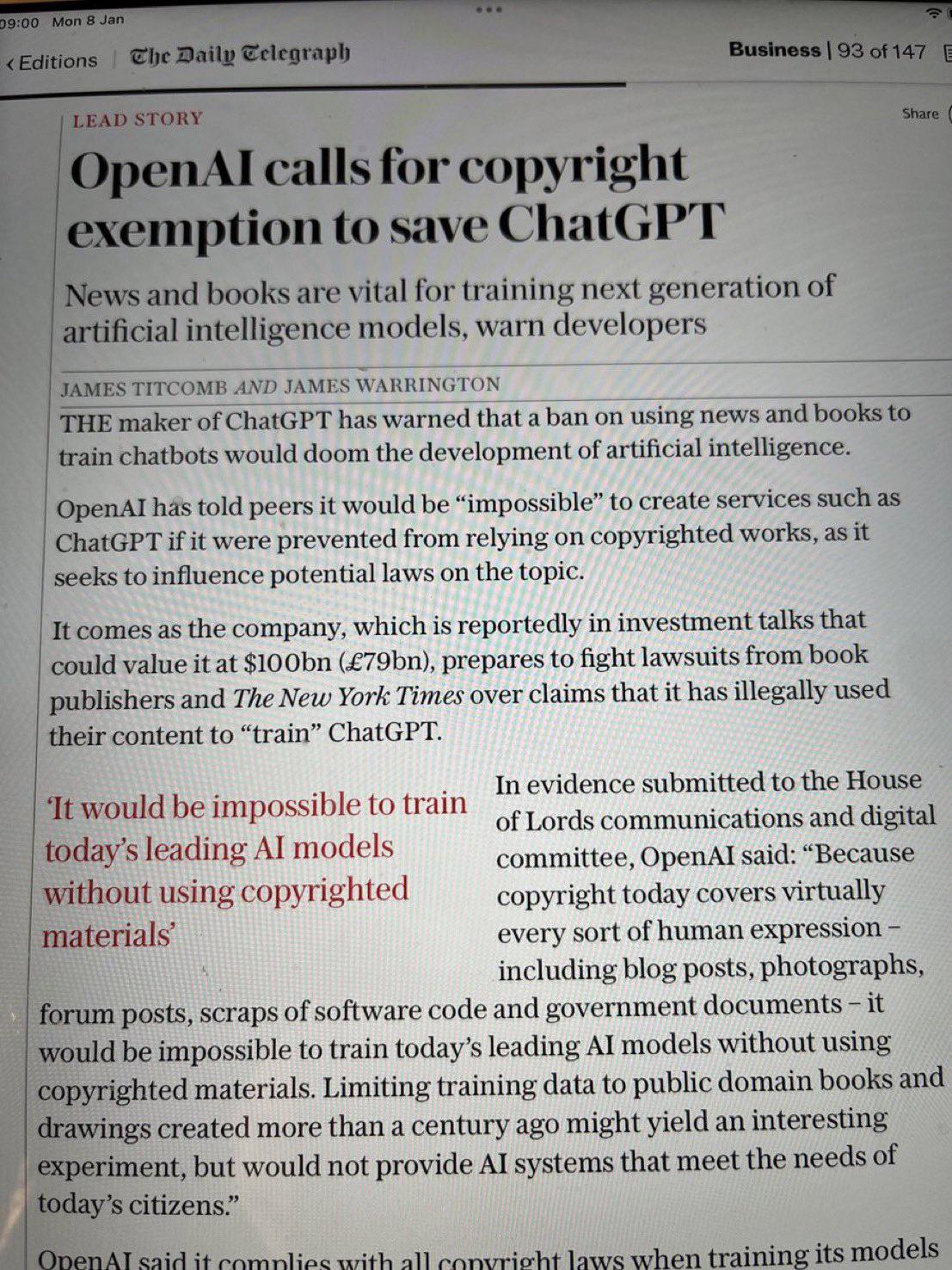In a pivotal report, the House of Lords has issued a stark warning against the widespread infringement of copyrighted material by artificial intelligence (AI) firms, particularly in the training of their chatbot technologies. Peers have raised profound concerns regarding the voracious consumption of content from books and news websites by tech giants, describing the scale of this practice as “absolutely massive.”
This issue underscores the urgent need for regulatory intervention to preserve the integrity of copyrighted works and safeguard against the monopolization of the burgeoning AI industry.
Copyright concerns raised by the House of Lords
The House of Lords communications and digital committee has articulated deep-seated apprehensions regarding the unchecked appropriation of copyrighted material by AI firms. Emphasizing the gravity of the situation, peers have called upon government ministers to fulfill their duty in halting the encroachment of tech giants into the multibillion-pound AI sector. The committee’s report underscores the imperative for immediate action, asserting that urgent safeguards must be implemented to curtail the unauthorized usage of copyrighted content.
In a nuanced exploration, it can be observed that the rise of cutting-edge artificial intelligence (AI) technologies, notably exemplified by ChatGPT, has substantially magnified the exigency for copyrighted material to serve as foundational fodder for training purposes. As multitudes of individuals engage with AI tools in their daily routines, spanning a spectrum from educational endeavors to professional pursuits, the burgeoning reliance on copyrighted content has undergone a perceptible escalation.
Yet, the proliferation of AI-driven solutions has elicited a cascade of apprehensions within the landscape of the news publishing industry, wherein the specter of AI-generated content looms ominously, posing an existential threat to the venerable institution of independent journalism, the very cornerstone upon which the fourth estate is built.
Tech giants’ defense and government’s call to action
Despite mounting scrutiny, major players in the AI landscape, including Open AI, Meta, and Microsoft, have defended their practices, contending that restrictions on accessing copyrighted material would impede the development of AI models. Arguing that such limitations would yield inferior outcomes in AI innovation, these companies advocate for a balanced approach that accommodates their reliance on copyrighted content while addressing concerns over intellectual property rights.
In response to the House of Lords’ admonitions, the Government is urged to take decisive action to address the copyright conundrum plaguing the AI industry. The report unequivocally asserts that a passive stance is untenable, emphasizing that policymakers cannot afford to defer responsibility to the judiciary. Instead, proactive measures must be adopted to establish robust safeguards that uphold the integrity of copyrighted material while fostering innovation in AI research and development.
As the debate over copyright infringement in AI training intensifies, stakeholders grapple with complex questions surrounding intellectual property rights and technological progress. How can policymakers strike a balance between fostering innovation and safeguarding the rights of content creators in the digital age? The House of Lords’ report serves as a clarion call for concerted action, underscoring the imperative for regulatory interventions to navigate this intricate terrain and uphold the principles of copyright protection in an era defined by transformative technological advancements.




